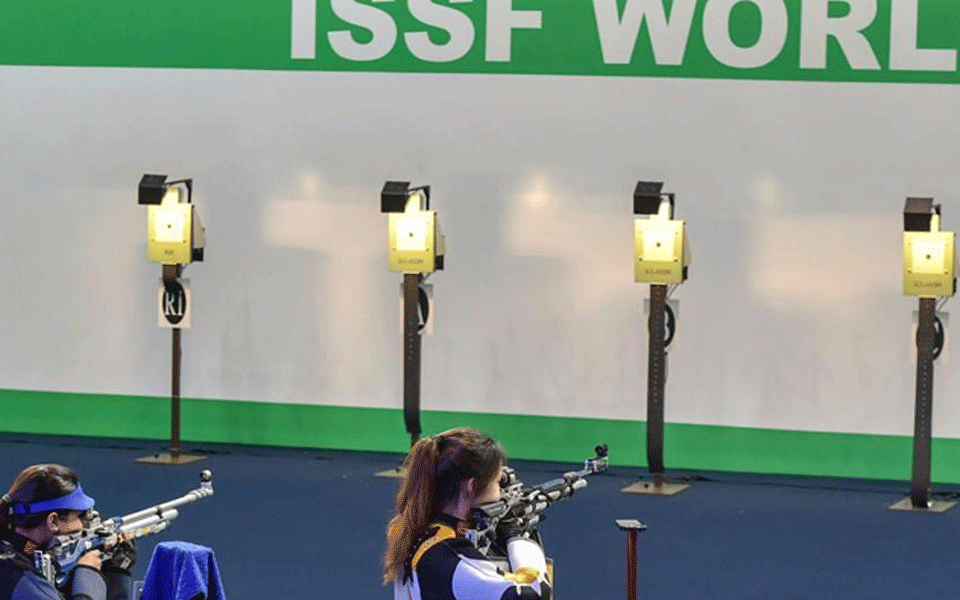New Delhi: On the back of its sparkling show through 2019, India finished the year as the top shooting nation in the world, leapfrogging Olympic heavyweights China and the USA.
In terms of overall medals, the tally stood at 21 gold, six silver and three bronze as India topped all the Rifle-Pistol World Cups and Finals in a unforgettable year.
A delighted National Rifle Association of India (NRAI) president Raninder Singh tweeted a screenshot of the International Shooting Sport Federation's (ISSF) overall rankings for 2019.
"Well done Team India," he wrote.
While India leads the standings with 30 medals overall, China is second with 11 gold, 15 silver and 18 bronze for a total of 44 podium finishes.
The USA is placed third with 15 medals (six gold six silver and three bronze).
The number of Olympic quotas, which now stands at a record 15, is not a only refection of the country's rapid rise in the sport over the last one year but also sets up the shooters nicely for a record haul at the Tokyo Games, after the meltdown at Rio de Janeiro.
Besides the shooters, the federation has also worked extensively towards bringing the sport to where it is today.
Indian shooting's best show at the Olympics remains the two medals won at London in 2012, but if the shooters' exploits in recent months are anything to go by, the country can easily emulate or better that in Tokyo.
Let the Truth be known. If you read VB and like VB, please be a VB Supporter and Help us deliver the Truth to one and all.
Dubai: Smoke was seen rising from an area near the United States Consulate in Dubai, according to witness accounts cited by Reuters.
There was no immediate official confirmation on the extent of damage or whether there were any casualties in the incident.
Earlier, the US embassy in Riyadh, Saudi Arabia’s capital, was also attacked. Authorities reported damage to the premises, but no casualties were recorded.
The developments come amid heightened tensions in the region, with Iran continuing to target US interests in the Middle East following deadly attacks launched on Saturday by Israel and the United States.
Near US embassy in Dubai pic.twitter.com/z5VTZNVxNO
— Sahil Shah (@thesahilsshah) March 3, 2026





